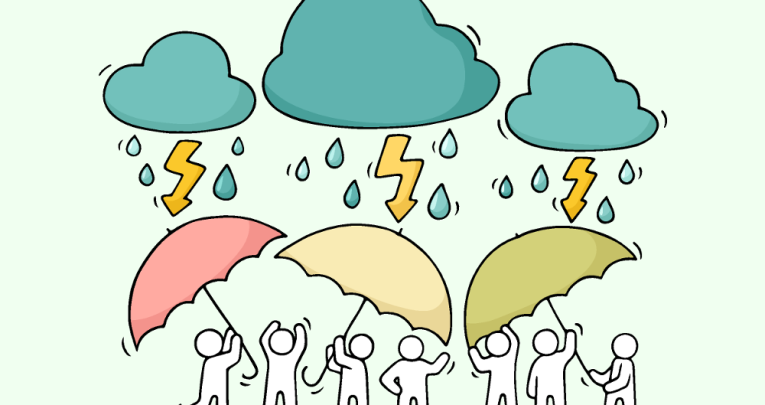Shielding Students From Negative But Normal Feelings Like Stress Could Do More Harm Than Good

Objecting to a policy or practice – including exams – on grounds of 'stress' is really a cop out, says Dr Alka Sehgal Cuthbert

- by Dr Alka Sehgal Cuthbert
- Teacher, independent academic, writer and director of Don’t Divide Us Visit website

The DfE’s proposal earlier this year to scrap the KS1 SAT tests was welcomed by many, with Mary Bousted, general secretary of the ATL, commenting that they cause seven-year-olds to “suffer stress and worry at a time when they’re supposed to be learning to love school and grow in confidence rather than fearing failure.”
It’s not only primary pupils who are considered vulnerable to stress around assessment; sociologist, Frank Furedi, notes how undergraduates are now considered by academics, administrators and health professionals to suffer from ‘examination syndrome’. And an NUT commissioned report, Exam Factories, found that many secondary teachers had more students reporting stress-related conditions during the exam period.
In fact, despite the vagueness of its definition, mental health has become such a compelling category that the Prime Minister announced in January that she would approve of paying £200,000 to the social enterprise organisation, Mental Health First Aid, to train 1,000 staff, who will be encouraged to become Mental Health First Aid Champions, and who will no doubt be enlisted in spreading the word so that within a further two years every secondary school will be covered.
The term ‘stress’, although rarely substantively defined, has acquired the status of a mantra in much educational, and wider public, discourse. It is assumed to be on the increase among the young; it’s bad, and therefore, anything that causes children stress is best removed.
But these assertions are called into question by some experts, including psychiatrist Allen Frances, who argues that his profession has become more amenable to ‘diagnostic inflation’. One consequence is that we are encouraged to interpret ordinary signs of immaturity, such as inattention, or lack of impulse control, in medical language.
Missing real risk
The more that risk, vulnerability and stress become the main cultural tropes with to justify all manner of developments in education – from accountability measures to individual performance in exams – the more likely it is that the pressure will mount for schools to be seen to be ‘doing something’, such as allocating resources to providing awareness training or on-site counsellors.
It might seem to be ‘caring’, but it is hard to see how normalising the exceptional will do much to help the minority of pupils who are suffering from serious, complex, difficult to diagnose mental illnesses.
This minority needs quicker, easier access to properly trained expert medical services, and their families may need access to support services, depending on the nature of the illness. They don’t need over-generalised initiatives which are more than likely to have unintended consequences; a proliferation of reports of ‘stress’ from pupils who do not, in fact, suffer from a mental illness, makes it more likely that those who do will be overlooked.
Seeing normal behaviour as signs of ‘stress’ also alters, in a subtle, unhelpful way, the teacher-pupil relationship, which requires authority and trust. If teachers are trained to be ever-vigilant stress-spotters, pupils may well conclude that when they ask ‘are you stressed?’, they are not really considering the pupil as an individual, but are more likely to be complying with an external authority/standard.
Children are very good at recognising inauthentic behaviour and it would not be surprising if they respond in kind, and claim to feeling ‘stressed’ as a way of accounting for a host of feelings which may be negative, but which could reasonably be considered to be part of human experience.
Of course, it would be odd if pupils did not experience unpleasant negative feelings, which could be called stress, at some point in their lives. But the cause is far more likely to arise from a nexus of factors than a single cause.
Trending
Also, children learn the normative language with which to interpret their feelings from the adults around them. So, the range of socially valued models of adulthood available is important. Today, for a variety of complex reasons, the range is, arguably, narrower than in recent history.
Notable by its absence is the model of the emotional robust individual, with inner resources strong enough to withstand some stress. In this situation, ‘stress’ easily becomes the go-to explanation for everything from self-harming to feeling tearful in exam week, because it reinforces a pre-existing social norm.
Let teachers decide
Educationally, objecting to a policy or practice, including tests, on grounds of ‘stress’ is really a cop out. It avoids putting forward a constructive educational case against assessment in general, or particular forms of it, eg exams.
Promoting stress as a legitimate category on which to introduce policies which are universal in their target, means that schools and heads are likely to find themselves being held more tightly to account on yet another, non-educational, measure – mental well-being, which assumes most pupils are deficient in something which is so ill-defined that it allows anyone to fill it the space and assert a pupil suffers from a lack of it – whatever ‘it’ is.
Rather than expect all teachers to sanction the ascription of stress and act accordingly, might it not be better to trust them to work out how to respond to individuals on a case by case basis? Could we not entertain the possibility that different, non- ‘stress’ interpretations of negative feelings might not be negligent or guilty of near child abuse?
It is quite possible that a pupil’s upset at failure (or the prospect of it) could be interpreted in a more positive light. Maybe he or she has tried to go beyond expectations, but fallen short. In which case teachers would do better to minimise the stress narrative and provide more constructive advice based on affirming what philosophers call the intellectual virtues.
Most importantly, schools and teachers need autonomy from regulation, and from more informal exertions of institutional pressure, in order to make these judgements for themselves. Unless we have good reason to think that teachers and heads are deliberately cruel, or criminally inept, we need to grant them this trust. Without it, the work of educating is a million times more difficult.
Alka Sehgal Cuthbert has worked in secondary and higher education for over 25 years. She is a governor at the East London Science School, and contributed to the SCETT publication ‘The Role of the Teacher Today’.
The Institute of Ideas Education Forum gathers monthly to discuss trends in education policy, theory and practice. The first session of the autumn term will be on Monday 18th September: “Never Mind Growth Mindset – Should Pupils Be Allowed To Fail?” Find out more at instituteofideas.com/forums/education_forum.










